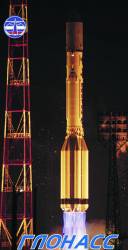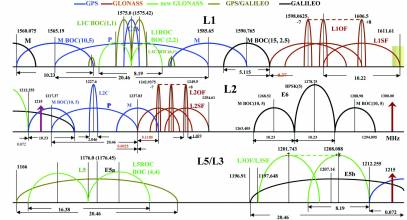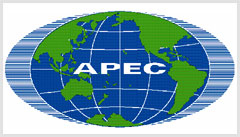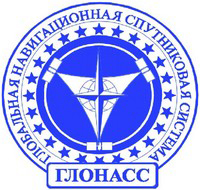Russia Approves CDMA Signals for GLONASS, Discussing Common Signal Design

Nearly 30 years after the first launch of a GLONASS spacecraft, Russia is moving to add code division multiple access (CDMA) signals to the frequency division multiple access (FDMA) format that has set the world’s second-oldest global satellite navigation system apart from GPS and other systems under development.
A February 15, 2008, government decree on new GLONASS requirements calls for open CDMA signals with a binary offset carrier or BOC (2,2) signal structure centered at 1575.42 MHz and a BOC (4,4) signal centered at 1176.45 MHz — essentially corresponding to the center points of GPS signals at the L1 and L5 frequencies and nearby Galileo and Compass signals.
An additional GLONASS FDMA signal will be located at L3 frequencies (1197.648–1212.255 MHz), just below the GPS M-code at L2.
Russia will implement the new signals on the next-generation GLONASS-K satellites, with the first launch currently expected in late 2010 with flight testing the following year.
By Glen Gibbons







